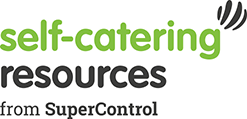In the final installment in our blog series: regulation in the self-catering industry we explore insurance in a self-catering context. Insurance is vital in any business. Should the unthinkable happen it gives you the peace of mind that you, your business and your guests are protected.
Does your insurance protect your holiday business needs?
This may seem obvious, but it’s actually quite a common misconception. Having an insurance policy that specifically covers your type of business is critical, without this you could be left without protection if something goes wrong.
Derek Nicol from Bruce Stevenson Insurance Brokers explains further,
“It always strikes me as strange when I come across self-catering and short term lets which have standard home insurance cover. This may indicate that the insurer does not know the property is let. If they don’t then the essential business covers are rarely present. Theft or damage by guests or loss of profits cover are only available with policies specifically designed to ensure the business interests are considered. If you have a loss and can’t trade it is imperative that you have the cover to ensure your financial loss is mitigated.”
Recommended cover for holiday rental providers
There are two types of insurance that are applicable to a holiday let business: public liability insurance and holiday let insurance. Both provide you and your guests with the assurance that you’re covered.
- Public liability insurance covers damage made by your business (eg a slate falling from your roof that subsequently damages your guest’s car).
- Holiday let insurance covers damage made to your business (eg flood damage to the property).
Insurance help and advice for self-caterers
As well as getting advice from Derek at Bruce Stevenson Insurance Brokers, we spoke to Phil Schofield from Schofields who also specialise in holiday let insurance. Phil’s advice to self-caterers with regards to choosing the right insurance follows,
“Choose a policy that covers:
“Burst pipes. Water is the biggest threat to holiday cottages, especially when they are unoccupied during freezing temperatures. Check what unoccupancy clauses and winter warranties apply to your property. Do you have to keep the heating on and/or turn off the water?
“Damage by pets. Scratching, chewing and soiling are common in pet friendly rentals, so ensure you are protected.
“Accidental damage. You usually have to pay extra for accidental damage cover to be included but it’s essential to cover accidents such as spillages or damage to kitchen worktops. We have all seen the horror stories when Airbnb guests trash a rental!”
Phil’s final tip is to ensure you are fully aware of what is covered, make sure you check the small print,
“If you don’t understand what your insurance does and doesn’t cover you should always talk to your insurer to make sure you have the right cover, as misunderstandings can lead to being under-insured or having a claim turned down.”
There are lots of companies that provide insurance for self-catering businesses and holiday let owners. Take a good look at your existing policy to check exactly what is covered, if it doesn’t match all your requirements it could be time to do some research to find a policy that is right for you.




